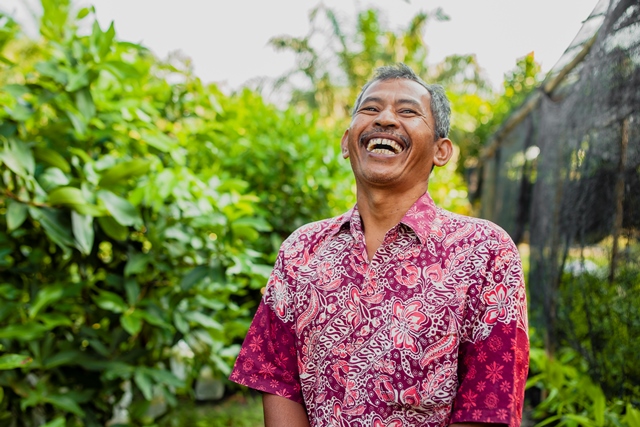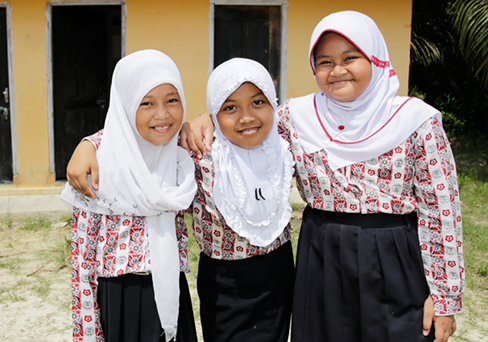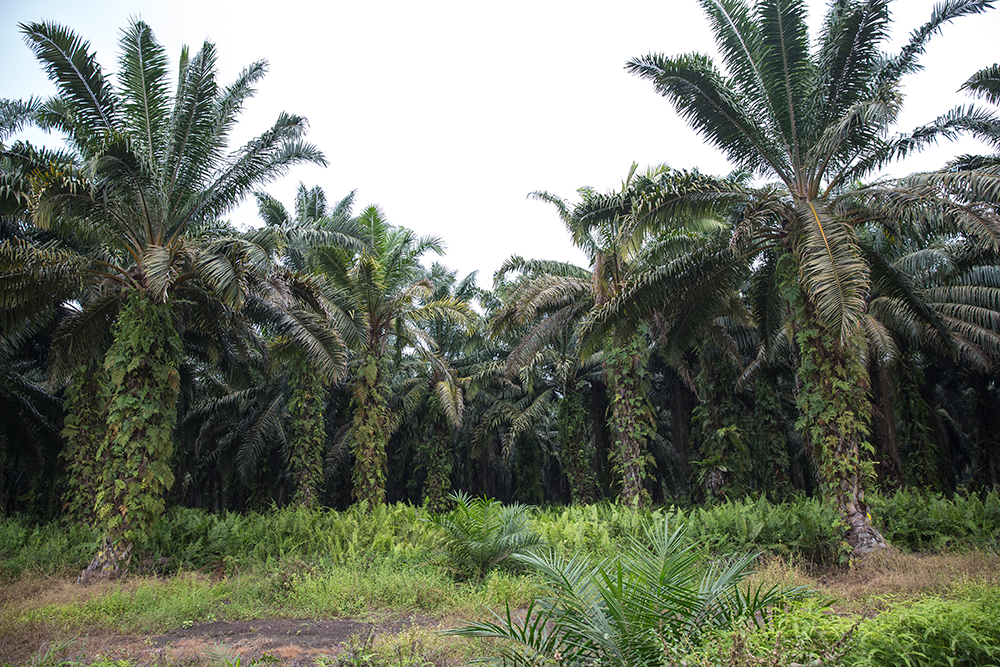OUR COMMITMENT TO CLIMATE STEWARDSHIP
A SUSTAINABLE TOMORROW FOR FUTURE GENERATIONS
Safeguarding our environment
As a company whose business is closely tied to the environment, Asian Agri is committed to proactive efforts in conservation, restoration and management of the Earth’s precious natural resources through protection-production partnerships. Guided by our triple-bottom line principles, we commit ourselves, including our smallholder partners, to sustainable and responsible production.
Conservation
High Carbon Stock Conservation
Asian Agri is committed to a no deforestation policy and conserving High Carbon Stock (HCS) forests.
A Technical Committee (TC) was established to define what constitutes HCS forests and to establish a HCS methodology and thresholds that take into account potential GHG emissions and regional socio economic factors. The TC comprised six highly experienced scientists with expertise in the following areas:
- Above and below ground biomass
- Soil carbon
- Remote-sensing
- Socio-economics and sustainable development
- The global oil palm industry
- Sustainability assessment
Protection of High Conservation Value Areas
High Conservation Values (HCV) are biological, ecological, social or cultural values that are considered outstandingly significant or critically important, at the national, regional or global levels. These include the presence of rare or endemic species, the provision of ecosystem services, and the sacred sites of local communities. HCVs are anticipated in all new land available for potential oil palm development and also in existing oil palm plantations. It is the company’s responsibility to maintain and enhance these values.
Most of our operations are established in degraded forests with relatively low biodiversity value. Each operation is established based on concession areas granted by the government, which also considers areas in need of protection. Within our estates, a certain area is set aside to conserve the protected and endangered species found within our boundaries. These areas include habitats of certain wildlife, riparian zones and areas that are of high cultural value to local communities.
HCV areas are considered prior to replanting and new planting programs. We are in active collaboration with academics and NGOs to provide us with the relevant expertise in HCV assessments based on the HCV Toolkit 2008 and to identify and develop strategies in managing conservation areas identified within our estates. The HCV assessments include our own estates, Plasma and KKPA areas. Rare, threatened and endangered species are identified by these prominent parties to aid in their conservation efforts. Identified HCV areas are maintained based on management and monitoring plans that we have developed.
Water and energy
Water utilization
Water recycling and energy efficiency are critical to our operations. We invest in water treatment technologies to clean water and minimize wastage, keeping water withdrawals below government-set guidelines. We recycle production waste and effluent to generate energy and at the same time reduce dependence on fossil fuels.
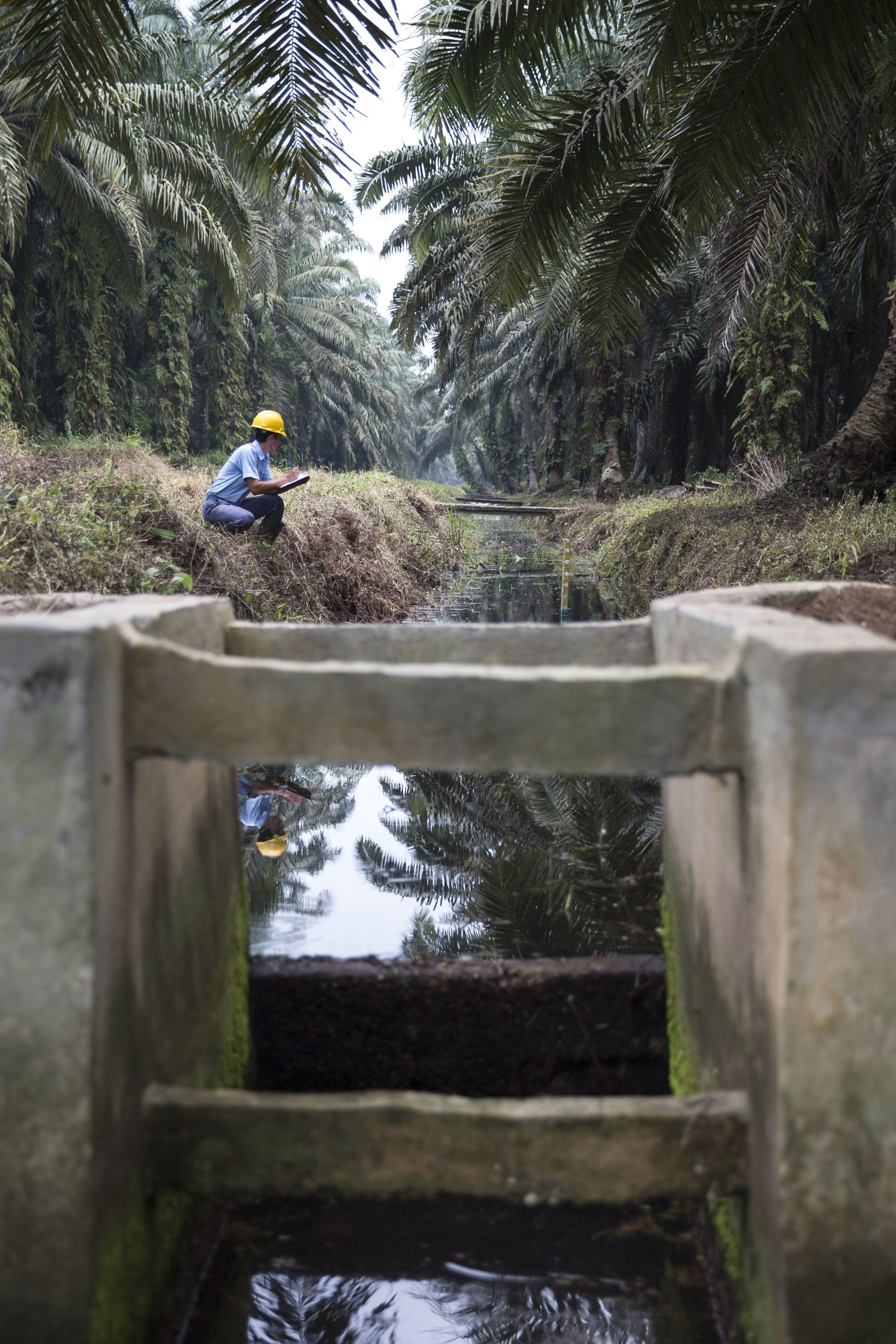
Peat land protection
Asian Agri, supported by its competent in-house R&D team, has conducted soil mapping and surveys to identify the main soil types on our estates. Some of our estates that were established back in the 1980s are located on peatland. The peatland is mapped on Asian Agri estates to guide Best Management Practices, which include proper nutrition, preventing excess nutrient leaching into waterways to prevent eutrophication, optimum water management and the monitoring of water subsidence.
As a member of RSPO, the water management practices for our estates are based on RSPO Best Management Practices on Peatland. A drainability study of the area must be conducted before the peat land is considered for new cultivation. The assessment will determine which water management approach is most suitable for the area, for example the use of bunds, water gates and weirs (water control structures). Good water management prevents inflow of water during the monsoon period when river water levels are high. It also serves an all-important function to prevent water from leaving the plantation during the dry months, mitigating the risk of over-drainage of the peat.
Over-drainage not only increases the rate of oxidation of the peat (GHG emission), but it also irreversibly destroys the physical structure of the peat itself and, therefore, is highly detrimental to the oil palm growth and yield. Subsidence poles are installed at strategic locations in the peat plantations to monitor the rate of peat subsistence on a monthly basis.
Our procedure requires that the water level in the drainage should be maintained throughout the year at between 50 and 70 cm from ground level. This is in line with the RSPO Manual on Best Management Practices for Existing Oil Palm Cultivation on Peat (2012).
GHG emission monitoring and reduction
Asian Agri analyzes air emissions from boiler chimneys and generators based on ISO 14001 Environmental Management System procedures. This analysis is monitored regularly by our internal team every six months and verified by a third party.
We also conduct GHG calculations for all of our mills and estates annually based on ISCC guidelines and RSPO GHG Palm Calculator. The calculator allows palm oil producers to estimate and monitor their net GHG emissions from the plantation to the mill. It also enables palm oil producers to identify crucial areas in their production chain and thereby guides emission reduction opportunities. Auditors verify our GHG calculations for ISCC and RSPO certifications.
One of the approaches being adopted by Asian Agri to reduce GHG emissions is the installation of biogas plants with methane capture technology, which will significantly aid reduction of our carbon footprint.
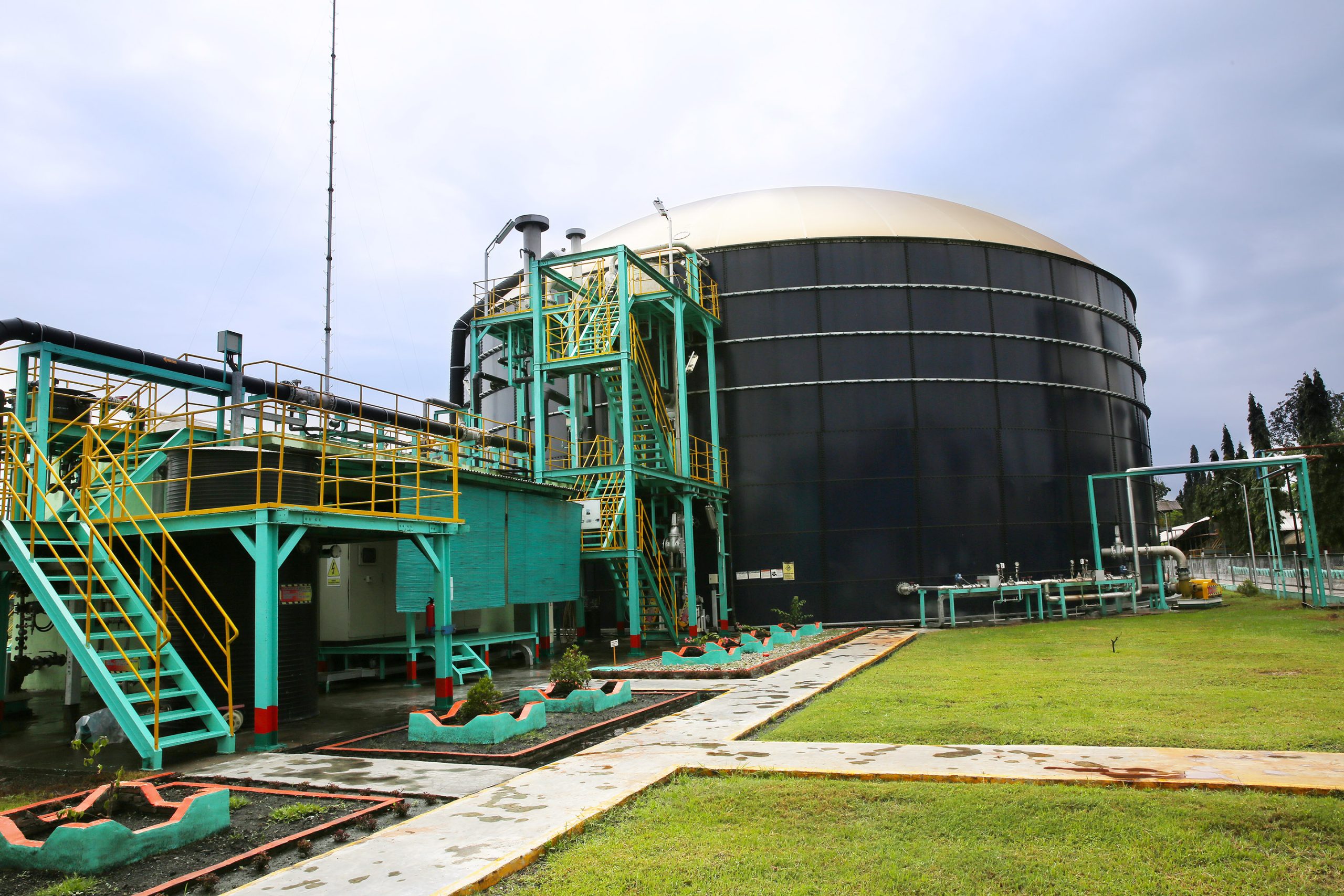
Fire Management
No land burning policy
Asian Agri was one of the pioneers in introducing a zero-burning policy in 1994, relying instead on mechanical land clearance. As part of the commitment to ensure that this is being implemented throughout our supply chain, we have contractual agreements with third parties to enforce the policy.
Emergency response procedures are put in place to respond to any outbreaks of fire on our plantations. These include a list and contact information of personnel responsible for attending to these emergencies, as well as the contact numbers of the local Fire Brigade Department. We have a dedicated team to do hotspot monitoring for risk of fires occurring within our plantations. We also conduct regular monitoring for hotspots using satellite imagery.
Fire and haze are key concerns in the province of Riau and as a consequence we have acted by putting into place infrastructure to respond effectively. Our fire-fighting team has obtained training on safety procedures and proper methods of fire-fighting by authorized trainers from the Fire-Brigade Department.
Sirens have been installed in case of fire and there is a designated ‘Assembly Point’ where employees gather in case of a fire. Fire extinguishers have also been placed at various strategic locations. These extinguishers are also inspected and serviced periodically to ensure that they are always functional.
Fire Free Village Program
Asian Agri believes that effective fire management is vital to safeguarding sustainable plantation management and ongoing conservation efforts, and it is for this reason that all our suppliers must adhere to our strict no-burn policies. As part of our zero-tolerance approach towards the burning of forests, we are part of the multi-stakeholder Fire-Free Village Program, which empowers and incentivizes participating villages to adopt no-burn approaches to managing land.
Piloted in 2014 by APRIL, the program has since expanded to include more villages and stakeholders who are both trained to eliminate slash-and-burn practices and educated on the impacts that illegal fires have on the local environment and our global climate. FFVP is a community-focused program that seeks to prevent fires rather than fighting or suppressing them after they have already started. By working with villagers in Indonesia, the program enables, empowers and incentivizes villagers to cease land burning practices.
We are also a member of Fire Free Alliance, working with other companies, NGOs and government to prevent fire in Indonesia.
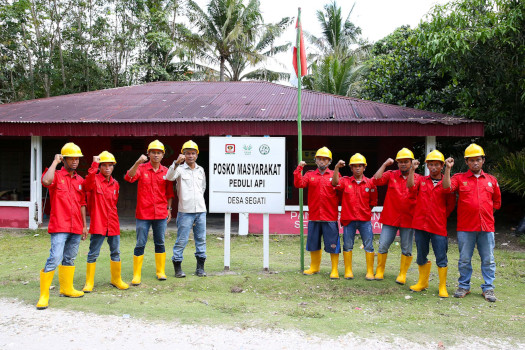
Waste Management
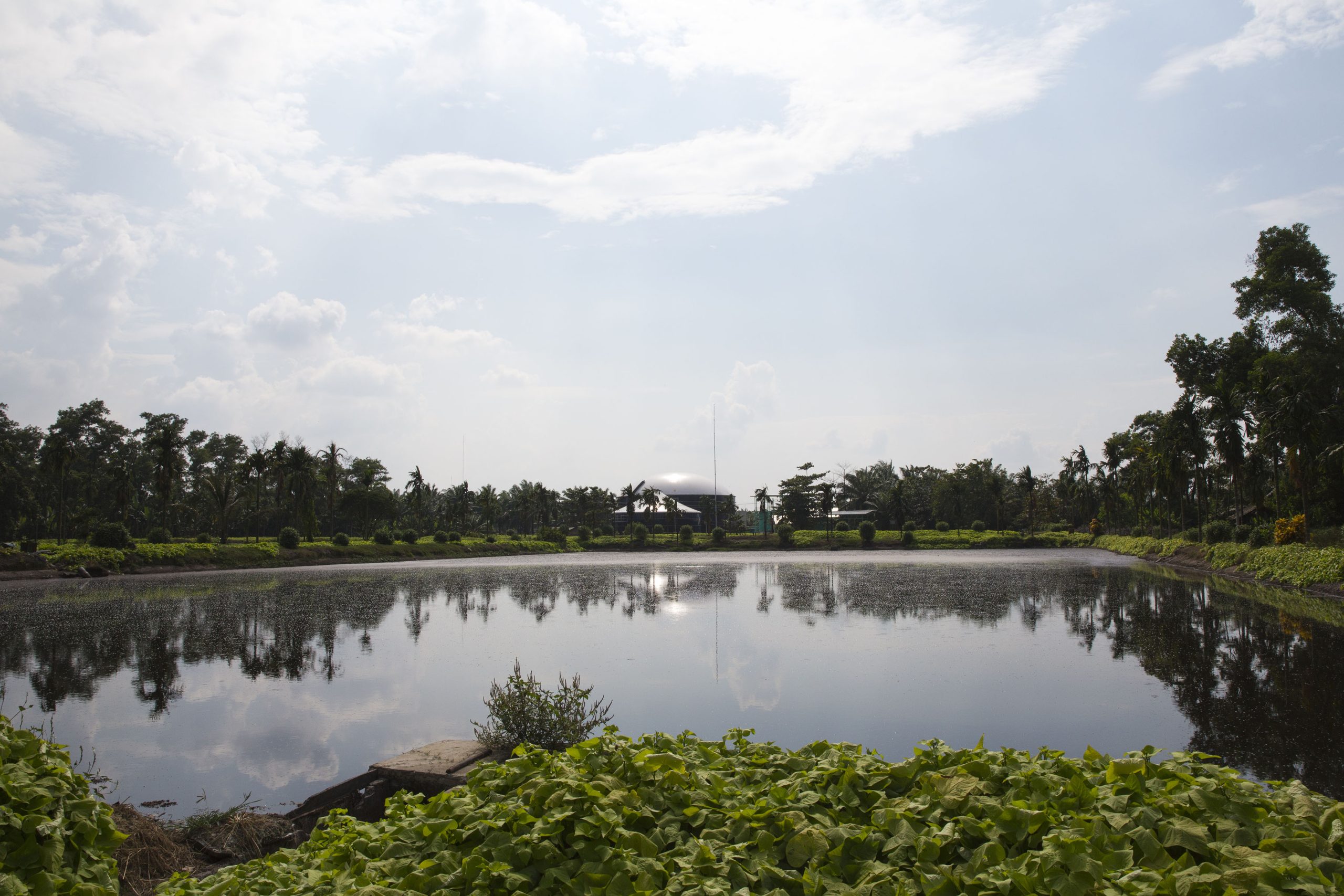
Asian Agri has a zero-waste management policy, requiring us to minimize waste. We use organic waste from the production process as fertilizer and as biofuel, and monitor ground water quality in these areas twice a year in conjunction with government authorities.
All waste is processed and tested by external parties to ensure it complies with Indonesian laws before being discharged or used as fertilizer.
Integrated Pest Management
Asian Agri always strives to reduce the use of chemical substances. In our efforts to minimize the use of pesticides, Asian Agri has implemented a system known as Integrated Pest Management (IPM) within our operations. We use owls as natural predators to catch rats, and breed insects that hunt the caterpillars that would otherwise eat the palm oil fruit. We even plant flowers that provide a home for these friendly insects.


